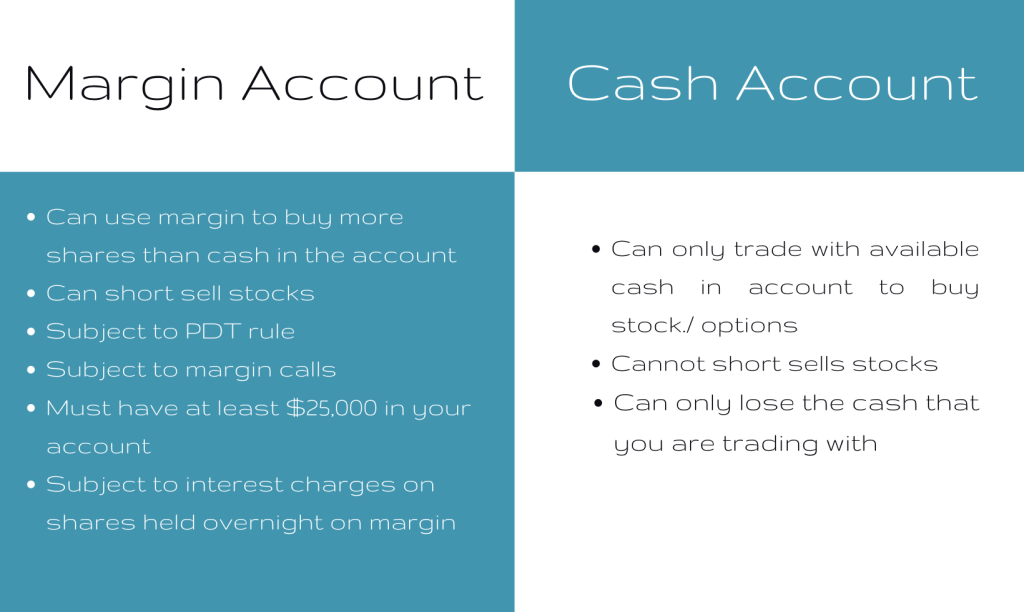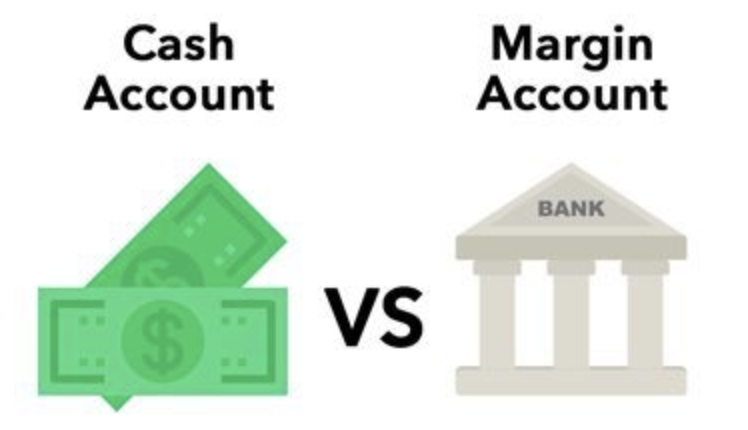
Margin accounts allow investors to leverage their investments by using borrowed money to increase their buying power. This can lead to higher potential returns, but it also increases the risk of losses, as investors are essentially investing with borrowed money.
Margin accounts typically have higher fees and interests rates than regular brokerage accounts, and investors are required to meet certain margin requirements to maintain their positions. If the value of the securities in the account fall below a certain threshold, the broker may issue a margin call.
A cash account is a type of brokerage account in which an investor uses only their own cash to purchase securities. Unlike a margin account, there is no borrowing involved, and the investor cannot use leverage to increase their buying power.
In a cash account, the investor must have sufficient cash on hand to purchase securities outright. If the investor does not have enough cash to cover the cost of the securities, they will not be able to make the trade.
Cash accounts typically have lower fees and interest rates than margin accounts, and there are no margin requirements to maintain positions. However, the potential returns are also lower, as investors cannot leverage their investments.
Cash accounts are often recommended for new or inexperienced investors who are just starting out, as they offer a simple and straightforward way to invest without the added risks and complexities of margin trading.
What are the differences between a cash and margin account?
There are several differences between a cash account and a margin account:
-
Borrowing: In a cash account, the investor uses only their own cash to purchase securities, while in a margin account, the investor can borrow funds from the broker to increase their buying power.
-
Leverage: A margin account allows investors to leverage their investments by using borrowed money to increase their buying power, while a cash account does not.
-
Margin requirements: Margin accounts have minimum margin requirements that investors must meet to maintain their positions, while cash accounts do not.
-
Fees and interest rates: Margin accounts typically have higher fees and interest rates than cash accounts, due to the borrowing involved.
-
Risk: Margin accounts involve higher risk than cash accounts, as investors are essentially investing with borrowed money that they will need to pay back with interest.
-
Trading restrictions: Margin accounts may have certain restrictions on trading, such as limits on short selling or options trading, while cash accounts typically have fewer restrictions.
In summary, cash accounts offer a simpler and lower-risk way to invest, while margin accounts offer the potential for higher returns but also involve higher risk and more complexity.
